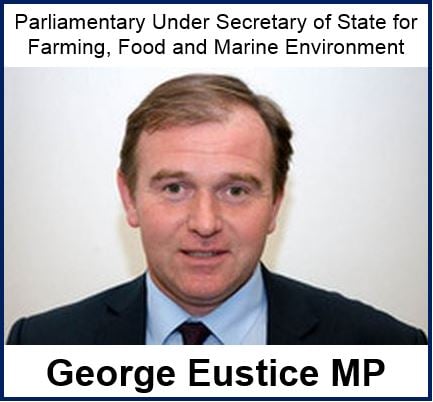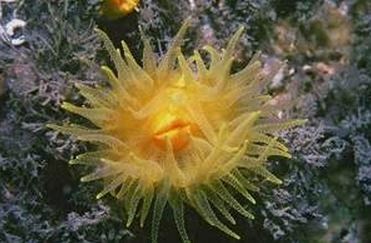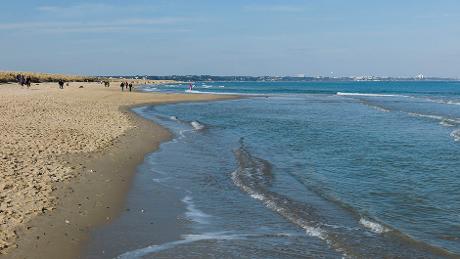A public consultation has been launched by the Government for the next tranche of areas to become Marine Conservation Zones along the English coast. The aim is to have the new areas designated by the end of 2015, depending on the outcome of the public consultation.
Initially, in November 2013, twenty-seven Marine Conservation Zones were established. The current consultation is for the second tranche of areas. A third tranche will come later to make sure England complies with the EU Directive regarding GES (Good Environmental Status) by the end of the decade.
The 23 proposed zones cover an area of 10,810 square kilometres, which is greater than the initial twenty-seven zones (9,664 sq km), and more than double the English coastal areas currently under conservation protection.
Mr. Eustice is inviting members of the public to contribute to the consultation. (Image: UK Government)
The Government is inviting members of the public to contribute to the consultation process, which closes on April 24th, 2015.
Marine Environment Minister George Eustice commented:
“We’re doing more than ever to protect our seas, preserving incredible underwater landscapes and helping our sea life flourish. We’ve already created 27 Marine Conservation Zones and a quarter of English inshore waters are in protected areas.”
“It is important we secure the future of our coastal communities as part of our long-term economic plan. We want to support these communities while protecting our marine life. We’re asking everyone with an interest in our sea to respond to our consultation so we can create new protected areas and ensure our seas remain healthy and productive for generations to come.”
According to the Government, the 23 sites have been proposed with a focus on opportunities to add to the current network of Marine Protected areas “giving further protection to vulnerable species and habitats in our seas.”
They range from a stretch of coast between Bideford and Foreland, home to the pink sea fan and anemones, to Allonby Bay on the Cumbrian coast, which has blue mussel beds and living reefs formed by the honeycomb worm.
Anemone habitats have been proposed as protection zones. (Image: UK Government)
The designation of the Fulmar offshore site in the North Sea would protect 2,400 square kilometres of sandy and muddy habitat, which is inhabited by several species, including cockles, clams, and the brittlestar (close relative of starfish) which crawls on five slender arms.
The Government said in a statement:
“This is just a part of the work we’re doing to protect and improve our seas. Our Marine Strategy Framework Directive consultation will give everyone the chance to say whether all our planned measures, from MCZs to the ban on throwing dead fish back into the sea, are enough to allow us to achieve Good Environmental Status in our seas by 2020.”
Government criticized for not doing enough
Studland Bay is excluded from the latest public consultation. (Image: The National Trust)
The National Trust criticizes the Government for excluding areas that are in urgent need of protection, such as Studland Bay in Dorset, where seahorses breed. The area is also home to juveniles of species such as flatfish, bream and bass. Sites around the Isle of Wight have also been missed out, they add.
The Marine Conservation Society, a charity, said that in the same week the Government warned that the country’s declining natural environment is harming the economy, it failed to deliver on promises to better protect English seas.
The Marine Conservation Society wrote:
“37 sites had been proposed to go forward to a second public consultation on Marine Conservation Zones (MCZs), all identified by Government’s scientific advisers as vital to plugging “major gaps” that currently exist in the development of a UK network.”
“However, only 23 sites have made the final list when the consultation for potential new MCZs was launched on Friday 30th January. While MCS is keen that members of the public air their views to ensure that these sites become a reality, the charity has real concerns that English seas will not contribute a network of sites that we can be proud of in future.”
Scientists at the University of Sheffield warned last week that the threat of widespread extinction of marine life is growing. They criticized academics for not taking the problem as seriously as the threat to plants and animals that live on land.
Study leader, Dr. Thomas Webb said that up to one fifth of well-known marine species are currently threatened with extinction.




